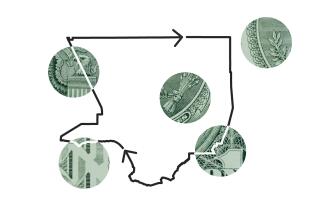CALIFORNIA ELECTIONS : ATTORNEY GENERAL : Candidates’ Battle of Ads Overshadows the Issues : Tom Umberg’s use of Polly Klaas murder case in TV commercials leads to sharp counterattack from Dan Lungren’s camp. Controversy eclipses debate over campaign donations.
- Share via
SACRAMENTO — First there was the Polly Klaas commercial. Desperate to unseat Atty. Gen. Dan Lungren, Democratic challenger Tom Umberg started airing a statewide TV ad last week suggesting that the failure of California’s top cop to fund a key computer database could have been the difference in the notorious Northern California kidnaping and murder of the 12-year-old.
Now comes Lungren’s response. This week he rolled out a commercial quoting newspapers critical of the Umberg ad’s twist on the Klaas case. Not mentioned is that some of the citations--the words “sleaze” and “slime” are prominent--were lifted from editorials endorsing Umberg.
To back up his televised counterattack, Lungren released letters that three dozen district attorneys--all supporters of the Republican incumbent--sent to Umberg demanding the Polly Klaas ad be pulled. One penned by Sonoma County Dist. Atty. Gene L. Tunney, whose office is prosecuting the Klaas case, said the Umberg commercial “deceptively manipulates the facts” and “shamelessly exploits the memory of a deceased child to secure votes.”
With that latest salvo, the attorney general’s race has effectively become a television tug of war over the tragic murder of a little girl a year ago. Matters such as soaring juvenile crime, the new “three strikes” law, Lungren’s reluctance to take a stand on the illegal immigration measure Proposition 187 and Umberg’s harvest of about $800,000 in campaign cash from Native American casinos have been overshadowed by a battle of TV commercials.
The Sacramento Bee, however, noting the large donations from Native Americans, took the rare step Friday of withdrawing its endorsement of Umberg. It commented in an editorial that “the appearance of impropriety becomes overriding” with the flood of campaign dollars to Umberg from a single funding source.
In a press release, Umberg said that with casinos, the Native Americans “have finally created a means to become economically self-sufficient and help get many of their members off welfare.”
To that end, Umberg has vowed to drop an appeal being vigorously pursued by Lungren of a federal court ruling that allows casino-style gambling on Indian reservations.
Umberg’s campaign team also argued that Lungren has received big donations from business interests he has helped during his tenure as attorney general. Among them are the California Manufacturer’s Assn., which has contributed $200,000 in recent years, and the wine industry, a solid Lungren supporter that has donated more than $100,000 in campaign funds, including $50,000 in the last week alone.
The Umberg camp continued Friday to insist that its ad, which features the grandfather of Polly Klaas laying a bouquet of white flowers at the girl’s memorial shrine, simply states the facts. Umberg contends that he is not accusing Lungren of complicity in a murder, just of administrative malfeasance.
He argues that Lungren was boosting his public relations budget at the same time he slashed funding for a statewide computer database that could have alerted deputies to the criminal record of suspect Richard Allen Davis before Polly died. “Lungren has the priorities of a politician, not a prosecutor,” said George Urch, Umberg’s campaign manager.
Davis was questioned briefly the night of the kidnaping by sheriff’s deputies unaware of the Klaas case. Umberg has insisted that the deputies might have detained Davis had the database been in place to identify him as a parolee.
Lungren campaign officials counter that the attorney general was trying to find money for the new system, but did not want to take funds from Justice Department responsibilities--such as fingerprint identification and forensics--already under the budgetary knife.
Even without the database, the deputies could have tapped a state computer that provides police with details of criminal histories, Lungren contends. But without knowledge of the Klaas kidnaping, the deputies lacked probable cause to check that system.
Would deputies have acted differently had they known Davis was a parolee?
Dale Moore, Sonoma County assistant sheriff, said that Davis’ tattooed arms and scruffy appearance prompted his deputies to “suspect he had done prison time.” But even had they known his criminal history, Moore said, “it doesn’t provide added probable cause to make an arrest.”
More to Read
Get the L.A. Times Politics newsletter
Deeply reported insights into legislation, politics and policy from Sacramento, Washington and beyond. In your inbox twice per week.
You may occasionally receive promotional content from the Los Angeles Times.










